Current Projects
Country: Mauritania
Showing 1 - 24 of 24
24 results found
Foster multi-country cooperation and to enhance institutional capacity for the protection and sustainable management of the transboundary Senegalo-Mauritanian aquifer system and its dependent ecosystems in order to improve water and food security, and resilience to climate change.
To enhance national-level institutional and technical capacities for the 2021-2022 UNCCD reporting process in the context of the UNCCD Strategic Framework 2018-2030 and SDG15.3
Strengthen Mauritania's capacities in climate transparency, according to the Enhanced Transparency Framework (ETF) under the Paris Agreement and thereby achieve its sustainable low-carbon development goals.
To support Eight (8) developing countries prepare and submit Biennial Transparency Reports (BTRs) and National Communications (NCs) that comply with the United Nations Framework Convention on Climate Change (UNFCCC) and Paris Agreement reporting requirements; and respond to their national development goals
To strengthen the adaptive capacity and climate resilience of rural communities in the Mauritanian wilayas of Adrar, Inchiri and Trarza, in the arid ecoregion
To assist GEF-Eligible Parties to the Cartagena Protocol on Biosafety to prepare and submit their Fourth National Reports on measures that each Party has taken to implement the Cartagena Protocol on Biosafety
To support eighteen (18) developing countries prepare and submit National Communications (NCs) and Biennial Update Reports (BURs) that comply with the United Nations Framework Convention on Climate Change (UNFCCC) reporting requirements while responding to national development goals. Participating Countries at CEO Endorsement Phase are: - Afghanistan; Azerbaijan; Benin; Burundi; Guinea-Bissau; Kuwait; Mauritania; Pakistan; Rwanda, St. Vincent and the Grenadines; Sao Tome and Principe; Senegal; Sierra Leone; Somalia; Suriname; Uganda; Viet Nam; and Yemen
To facilitate access to GEF funding by 52 countries for Enabling Activities to meet their obligations under the UNCCD a) alignment of NAPs with 10 – Year Strategy and b) Reporting and Review process
To enable country Parties to collect necessary biophysical, socioeconomic data, establish sound reporting and monitoring systems at national level and report against the UNCCD Strategy
Improving knowledge-based management, governance and resources conservation of the Niger Basin and the Iullemeden-Taoudeni/Tanezrouft Aquifer System (ITTAS) to support IWRM for the benefit of communities and the resilience of ecosystems
To strengthen national capacity for environmental information and knowledge management for the imple-mentation, monitoring and reporting of Multilateral Environmental Agreements (MEAs) and relevant Sustain-able Development Goals (SDGs) in Mauritania
To Assist GEF-Eligible Parties to the Nagoya Protocol on Access and Benefit Sharing to prepare and make timely submission of their Interim National Reports on measures that each party has taken to implement the Protocol in line with Article 29
To reduce the vulnerability to climate change of national government and local communities in the forests and rangelands of the Sahelian Acacia Savanna Ecoregion
To support eighteen (18) developing countries prepare and submit National Communications (NCs) and Biennial Update Reports (BURs) that comply with the UNFCCC reporting requirements while responding to national development goals
To assist Mauritania to update the status and capacity for the safe use of biotechnology and to strengthen Mauritania institutional capacity in the development and implementation of the National Biosafety Framework
To Assist GEF-Eligible Parties to the Cartagena Protocol on Biosafety to prepare and make timely submission of their Third National Reports on measures that each party has taken to implement the Protocol in line with Article 33
Nine countries prepare and submit intended nationally determined contributions (INDCs) to the 2015 United Nations Framework Convention on Climate Change (UNFCCC) Agreement and have institutional arrangements in place that support the INDC process
To prepare and submit Mauritania’s first biennial update report (BUR) to UNFCCC and in doing so enhance Mauritania’s capacity to meet its reporting obligations under the UNFCCC on continous basis.
Project Objective: To build climate resilience in developing African and Asia-Pacific countries using Ecosystem Based approaches to Adaptation (EBA) through capacity building, knowledge support and concrete, on-the-ground interventions.
Project Objective: With the overarching goal of integrating CBD Obligations into National Planning Processes through Enabling Activities, the main objective of this project is to enable GEF eligible LDCs and SIDs to revise the National Biodiversity Strategies and Action Plans (NBSAPs) and to develop the Fifth National Report to the CBD
To enable the countries of the Canary Current Large Marine Ecosystem to address priority transboundary concerns on declining fisheries, associated biodiversity and water quality through governance reforms, investments and management programs. The long-term environmental goal of the CCLME program is to reverse the degradation of the Canary Current Large Marine Ecosystem caused by over-fishing, habitat modification and changes in water quality by adoption of an ecosystem-based management approach.
This review should be read along with earlier review which preceded this review sheet).The objective of the project is the conservation and sustainable use of the international watershed and biodiversity of the Fouta Djallon highlands. The project will build on the experiences of the Fouta Djallon Programme coordinated by ICO-OAU which was aimed at promoting holistic approaches to integrated ecosystem management-based participatory and community-based strategies.
The Project Development objective is to protect transboundary waters in the Niger and Senegal River Basins through elimination of POPs pesticide-use and substantial reduction and elimination of other toxic pesticides used in agriculture; while augmenting agricultural productivity and net economic benefits to farmers. The Project Purpose is to demonstrate best practices for contaminant prevention and increased agricultural productivity through participatory farmer-education approaches. Key project objectives are: 1) awareness raising and establishing community baselines, 2) assessments of freshwater contaminants, 3) developing Best Practices, and 4) developing IPPM community and trainer networks.
To enhance the conservation of key species in Mauritania through the creation and sustainable management of a new Protected Area in the arid Wilaya of Adrar.
Showing 1 - 24 of 24




